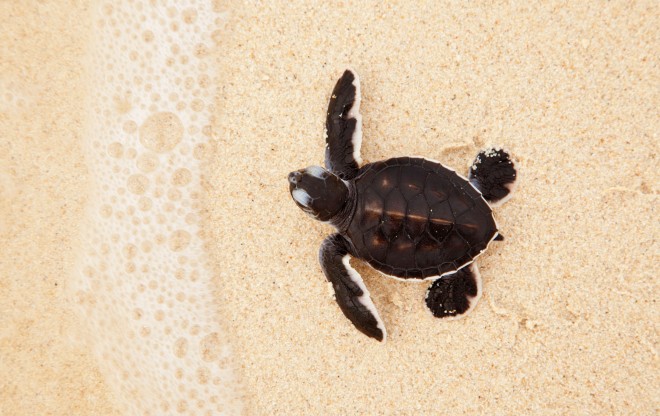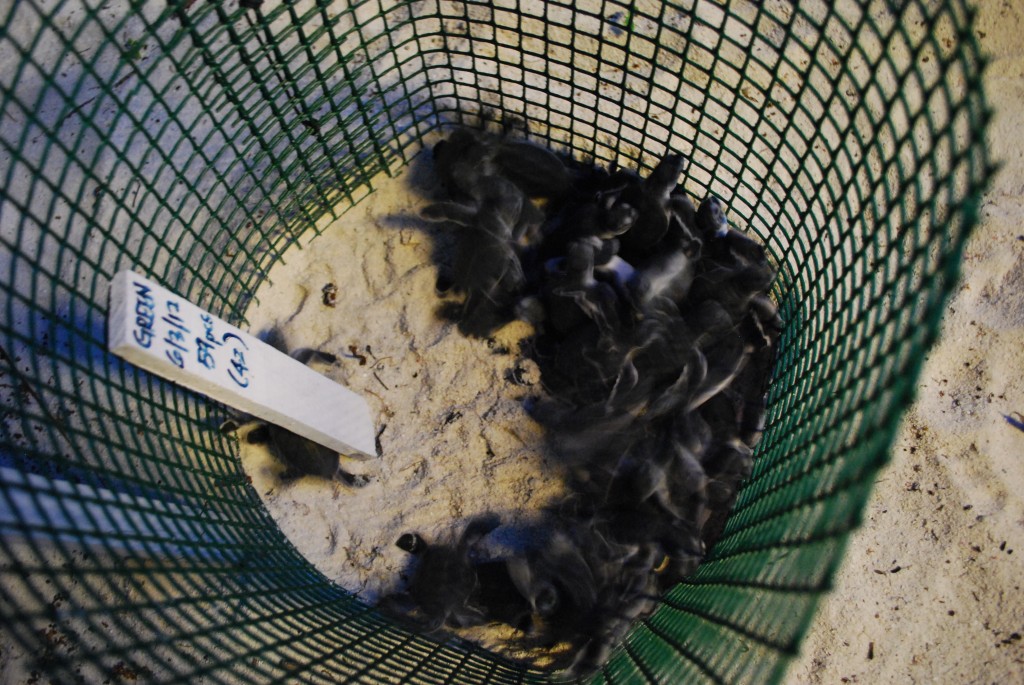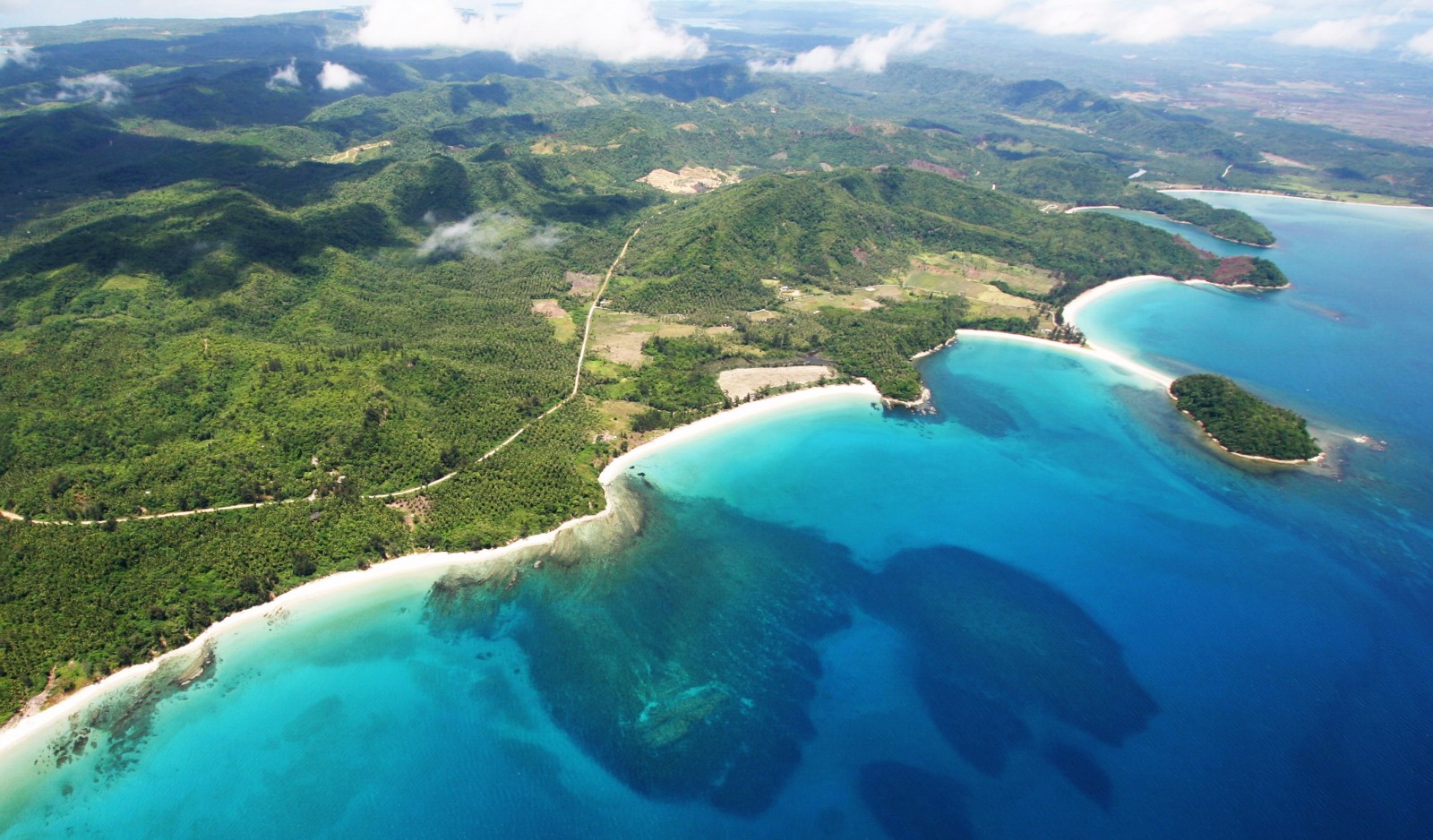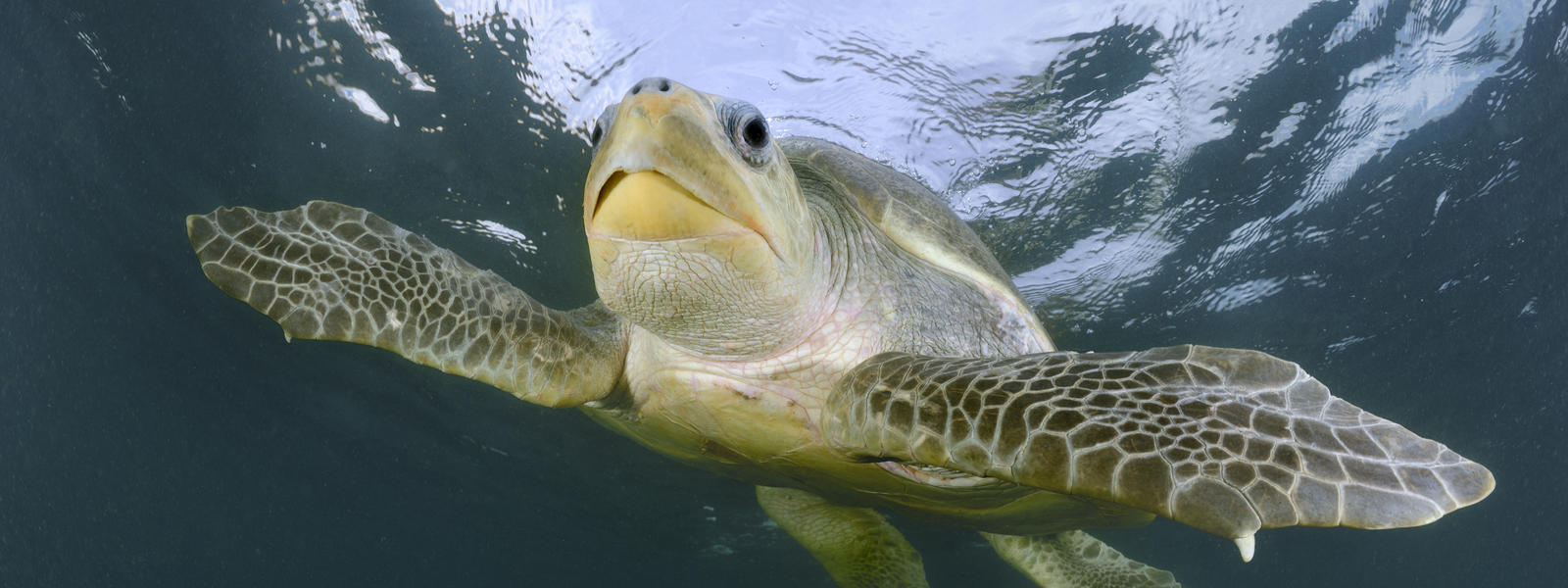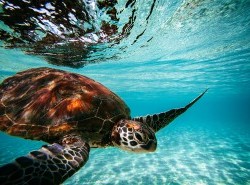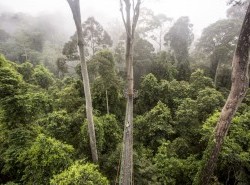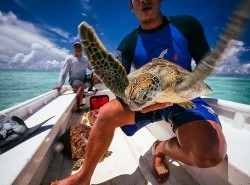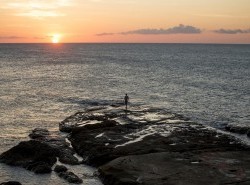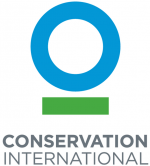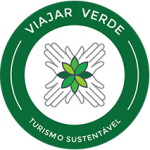The abundance of beautiful white sand beaches at the northern tip of Malaysian Borneo makes the area an ideal nesting ground for sea turtles. Of the seven sea turtle species, four occur here in the district of Kudat, Sabah – Green Turtles, Hawksbill Turtles, the critically endangered Leatherback and the elusive Olive Ridley Turtle. But turtle numbers have been dropping alarmingly in the Tip of Borneo. Even if they are not being hunted for their shells, meat or eggs, turtles often end up as bycatch in the nets of commercial fishing trawlers. Local communities dig up freshly laid eggs for food, while beach erosion, pollution and development are destroying important nesting grounds.
At one of the sites, Bawang Jamau village, plans are well underway to build a homestay. The project is being spearheaded by local resident Roland Agasai, who recognizes the value of Kudat’s turtle population, not least as a draw for tourists. KTCS is already working with an adventure travel company, which brings in overseas students to work as volunteers on conservation projects. Two more companies now want to get involved. KTCS is also in the process of recruiting an intern to gather much needed data on local turtle populations and behaviors.
“There is huge potential for sustainable ecotourism in Tip of Borneo,” Francesca says. “It’s small, it’s beautiful and there’s nobody here. Our vision is to turn poachers into tour guides. And we are already making it happen.”
